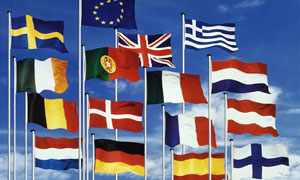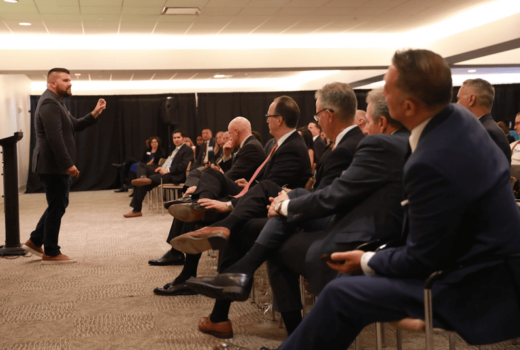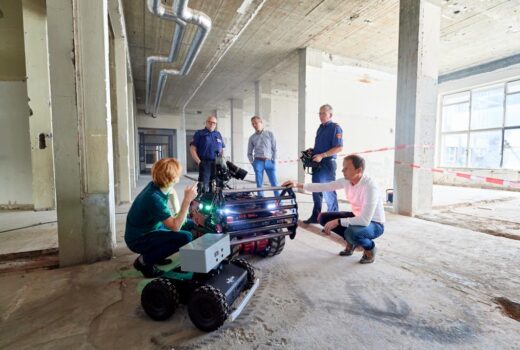Europa wil toegankelijkheid versterken

“The crisis has magnified the inequalities that hold so manypeople back. Young people are especially hard hit. The mostvulnerable – the 1 in 7 who leave school early – are finding iteven harder to get a foot on the ladder. Youth unemployment hasjumped above 21%. 80 million adults are trying to survive on thejobs market with only basic skills. Difficult enough in 2010. Andit won’t get easier.”
De eurocommissaris voor onderwijs zei in Gent daarom, dat zij hiereen zwaar extra accent op gaat legen in de weg omhoog uit decrisis.
“Demand for high skills is certain to increase over the nextdecade. Rapid change will continue to shape our lives. Stayingafloat without the skills to adapt, to learn, and to managecomplexity, will be harder than ever. We must put the promise of abetter life for all, starting with the most vulnerable, at the veryheart of European action. This is why the European Union hasdedicated 2010 to the European Year for combating poverty andsocial exclusion.
This is also why we have placed fairness for all at the heart ofEurope 2020, our shared strategy to guide Europe back to smart,sustainable and inclusive growth over the next decade. This is notan easy path in times of economic downturn and demographic change.But European societies have to answer the call for fairness: tobecome more inclusive, to integrate and care for growing numbers ofold people, to provide better chances for young people, and secondchances for those who have lost their jobs and risk losing theirplace in society.
Education and training are key to our efforts. They have a decisiverole to play in overcoming the crisis. In the immediate future, byhelping people protect their skills. In the longer term, bydeveloping new skills for the knowledge-based, greener economy thatEurope 2020 targets. And in the broadest sense, because educationconveys the values of solidarity and active citizenship thatunderpin our European model.
This certainly does not mean business as usual. We have to take along, hard look at education: where it succeeds; and where itfails. Because although our systems have the potential to supportupward social mobility, in practice they do not always do so.
We tend to think of education as a kind of well-functioningelevator. That, once on board and armed with knowledge and skills,people move smoothly upwards in life. Undeniably, education can,and does, produce this result. No matter what disadvantages theyface, many individuals succeed on their life-path thanks to thestart they got from their education.
But, equally, many people are left behind. They never even get thechance to start the trip. Too often, people who are poor, ormigrants, or with special needs, do not have the same chances ineducation and training as their more privileged neighbours. We haveto do more, and reach more people, in our efforts to make educationa gateway to new opportunities.
This is the purpose of our work with the Member States, agreeingcommon approaches to these shared challenges. Our new joint workprogramme aims to give everyone a fair deal in education.
We will propose a Council Recommendation on promoting non-formaland informal learning. Many people, especially those who lefteducation early, perfect their skills in unconventional, informalways. We want to strengthen this kind of learning, so that theskills gained outside formal education and training are dulyrecognised. We believe this can help open up more opportunities foryoung people, for people who are disadvantaged, and for those whowant to aggregate their entire portfolio of skills to strengthentheir chances for employment.
I will also, in November, propose a new Agenda for New Skills andJobs with my colleague Laszlo Andor, the Commissioner forEmployment. This initiative, too, will empower people by helpingthem to acquire new skills to adapt to the changing labour market.We know that disadvantage tends to pile on disadvantage. Forexample, many students from a migrant background are motivated andsuccessful learners; but many are held back by language issues, bydiscrimination and poverty. We will set up a network next year toshare experiences on what works best in integrating children ofmigrants in schools.
At the same time, ladies and gentlemen, education alone cannotdefeat poverty, deprivation and prejudice. Access to the elevator,that I spoke of, can be barred by many other obstacles. Next year,I intend to bring forward a new initiative on equity in educationand training. I will be proposing links with a coalition ofinterests, to tackle exclusion together.
Our strategy must be coherent and comprehensive to cover all typesand levels of education and training in a lifelong learningperspective. It must be outward looking – and go beyond educationand training to become a solid foundation for synergies with otherpolicies and agencies.”
Meest Gelezen
Wederom intimidatie van journalisten door universiteit, nu in Delft
‘Burgerschapsonderwijs moet ook verplicht worden in hbo en wo’
Raad van State: laat taaltoets nog niet gelden voor hbo-opleidingen
Vrouwen houden universiteit draaiende, maar krijgen daarvoor geen waardering
Extra geld voor bètafaculteiten is daar nooit terechtgekomen



